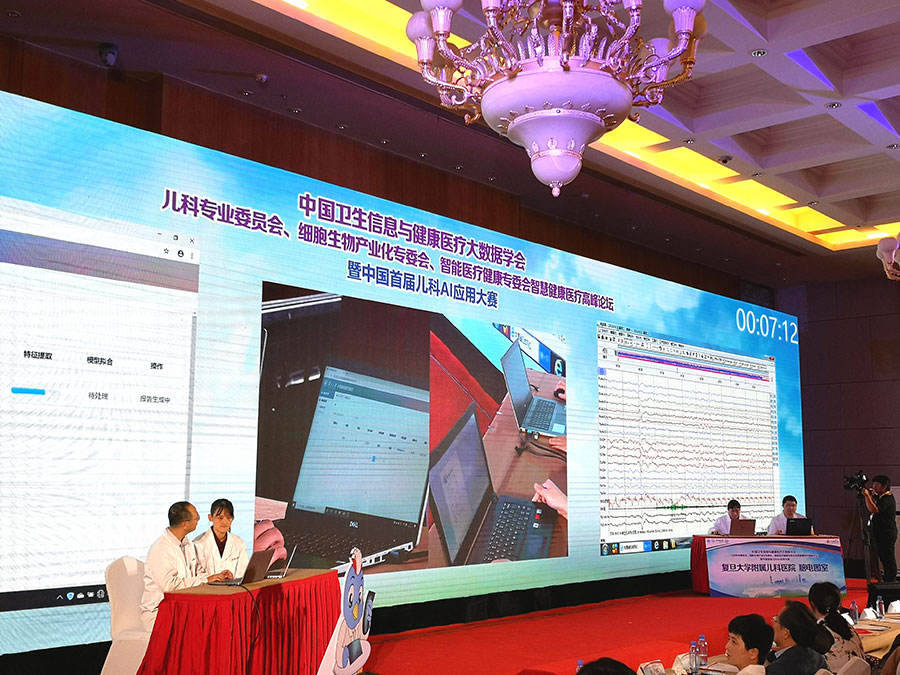Hospital pits their human workers against AI


The Children's Hospital of Fudan University on Sunday held a competition that pit its medical staff against an artificial intelligence-powered medical diagnosis system during the China Digital Health Medical Conference in Hainan province.
The doctors and nurses competed with the system in areas such as disease diagnosis, hospital guidance, medical scan result interpretation, electroencephalogram test result interpretation and the prescription of medication.
The hospital said that the independently developed system was able to perform these tasks quicker than human medical professionals. The two parties had similar accuracy rates.
For example, it took only eight minutes for the AI machine to analyze the raw data from a two-hour electroencephalogram test, less than one-third of the time human doctors required.
The hospital said that the electroencephalogram test is an important means of identifying neonatal brain diseases, one of the major causes of death in critically ill newborns. However, the challenges that humans face in reading the test results have hindered the standardization and widespread application of the tests.
Xu Hong, Party secretary of the hospital, said that such machines will help elevate efficiency at major hospitals, reduce the occurrence of medical mistakes and alleviate the workloads of doctors and nurses.
"We plan to expand the use of AI machines in more fields and medical departments in our hospital. As a national-level children's medical center, we aim to apply the machines in more community health centers and grass-root hospitals in remote areas to help general practitioners become more proficient in the diagnosis and treatment of various diseases, including even rare diseases," said Xu.
Huang Jianfeng, deputy director of the hospital's respiration department, said that the AI machines have advantages over humans, such as never needing to take a break and being able to accurately take factor in every detail of a patient's symptoms when making a diagnosis.
"The AI machine will remind me when a patient shows certain special symptoms. It makes medical service safer," he said.
- Avalanche in Xinjiang leaves one dead
- Research ward at children's hospital in Shanghai treats over 200 patients with rare diseases
- Chongqing symposium examines planning cities around sound, smell, touch
- Former Qingdao legislature chief under investigation
- Former Xinjiang prosecutor Guo Lianshan under investigation
- Shandong and SCO discuss trade, investment and supply chain cooperation





































